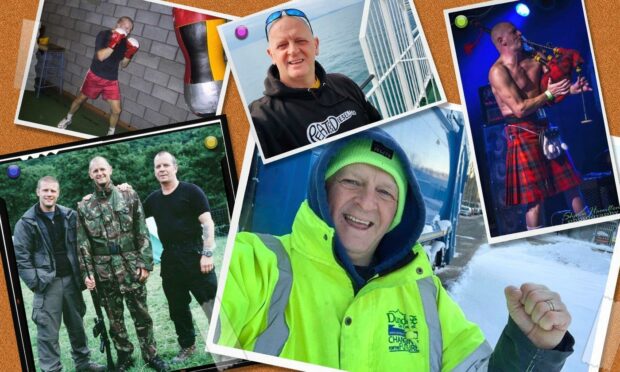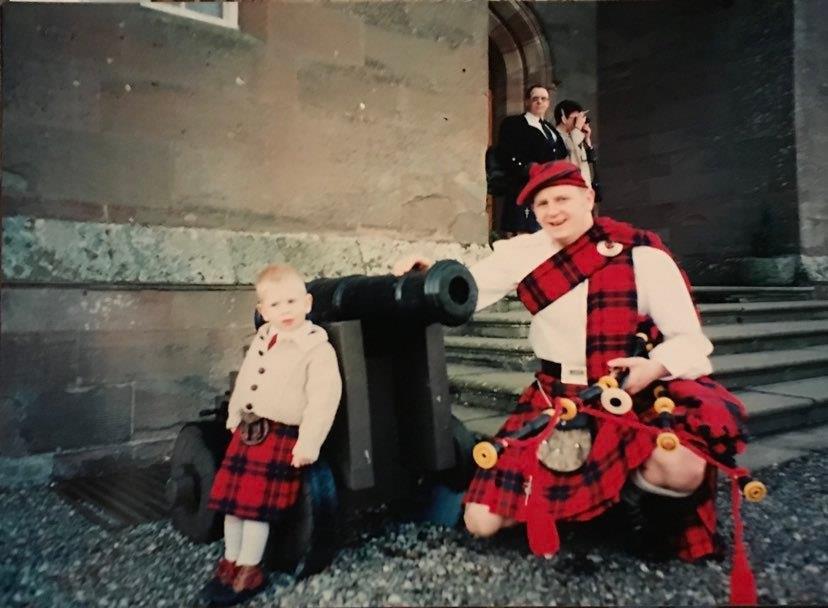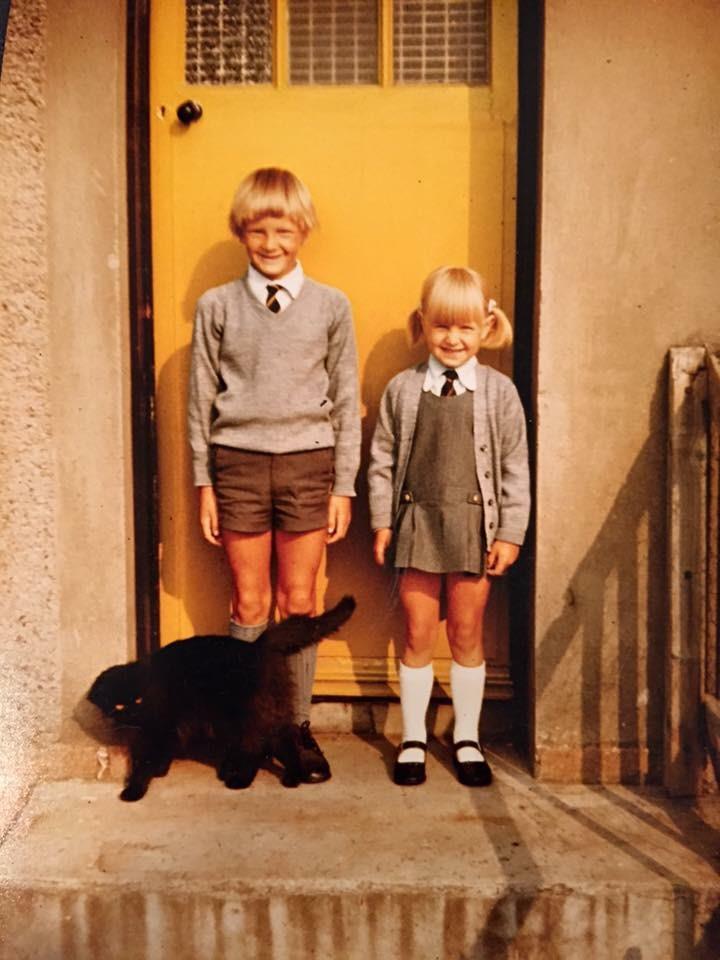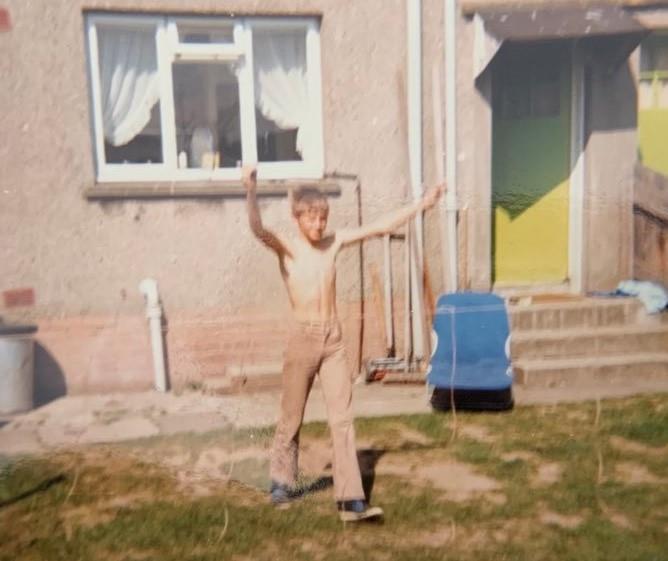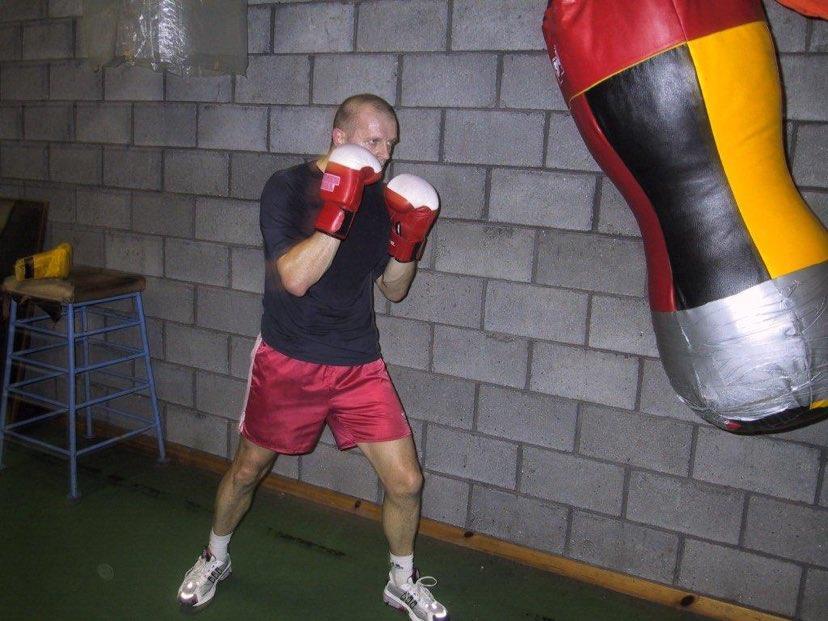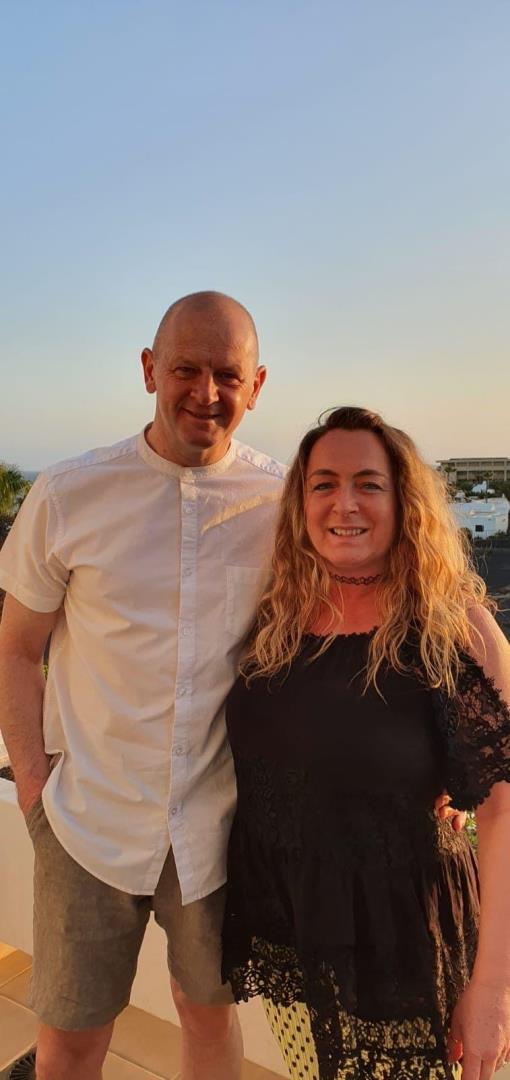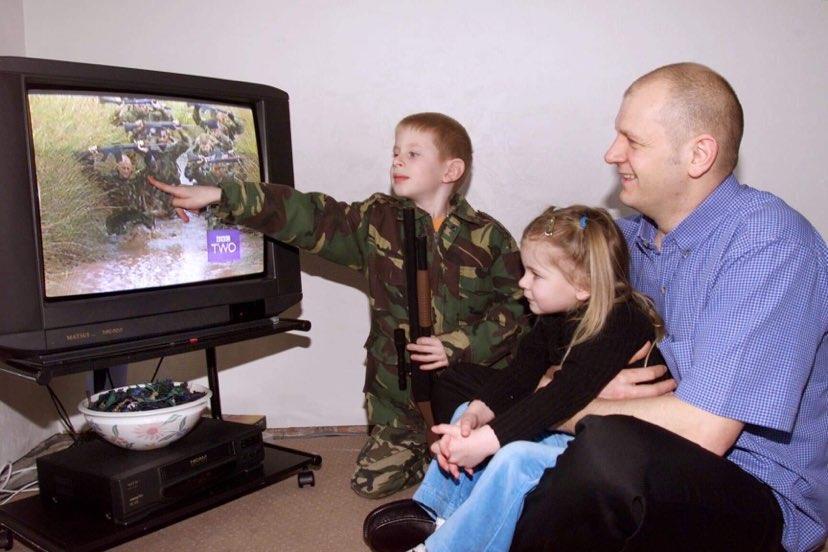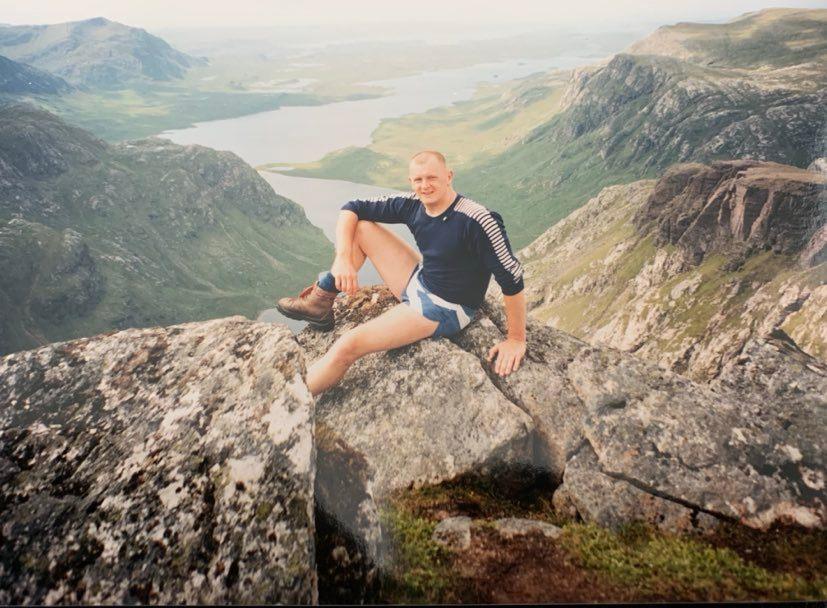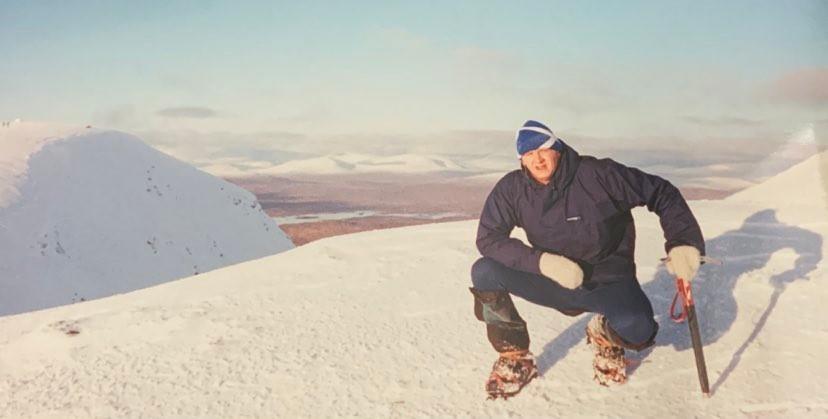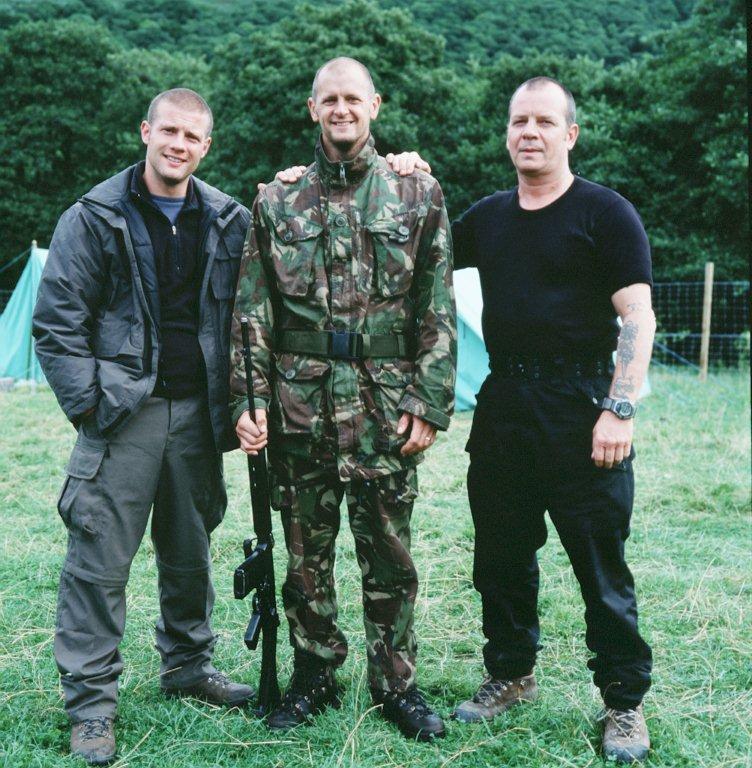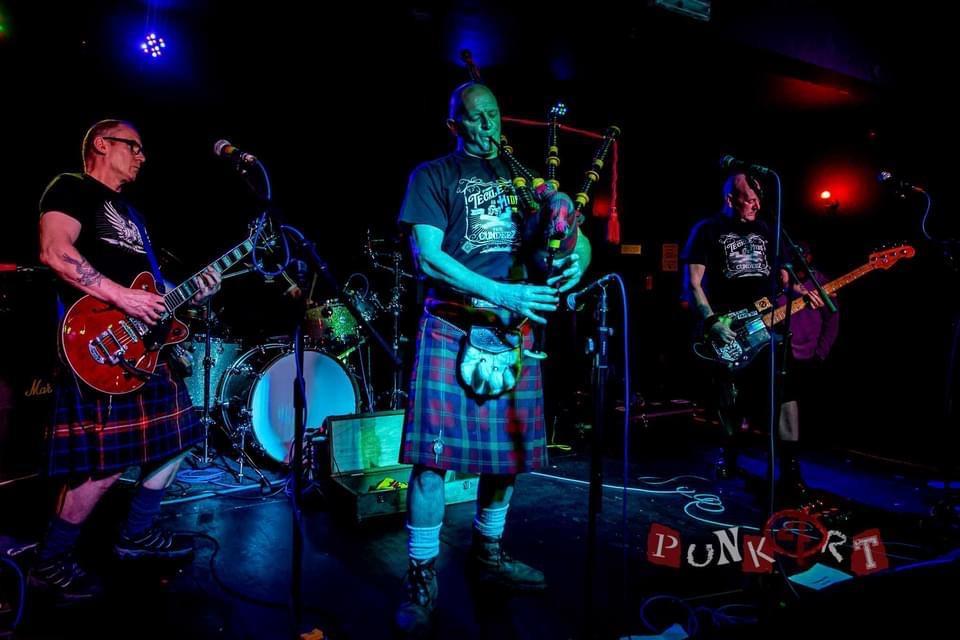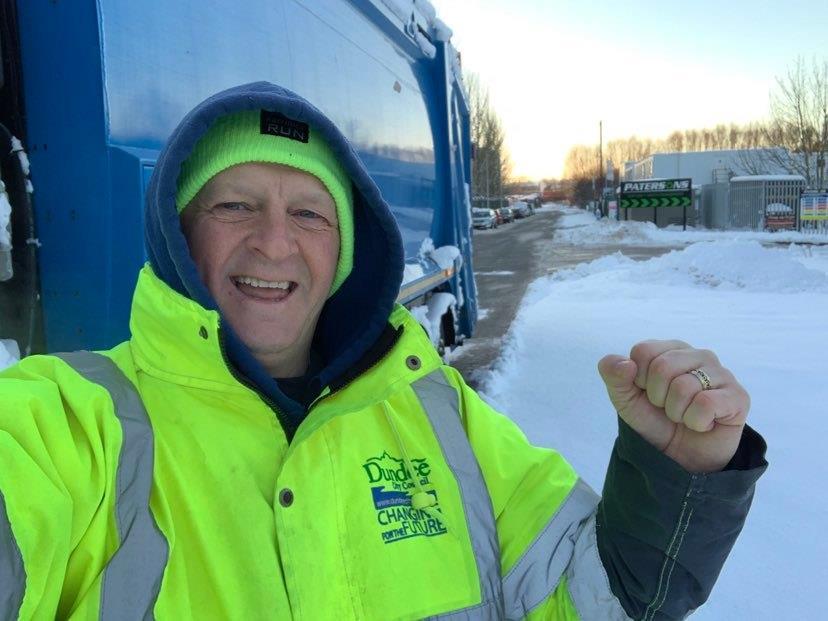Gary Robertson has packed an awful lot into his 54 years.
He has experienced life at the sharp end of urban gangs, won a national reality TV show, written five books, created six plays, achieved an award for his poetry, sang in a band now onto its sixth album and almost died while pursuing his successful quest to bag all 284 Munroes.
All while living in his native and beloved Dundee and, remarkably, all in his spare time. For the past 12 years Gary has been a bin collector in the city.
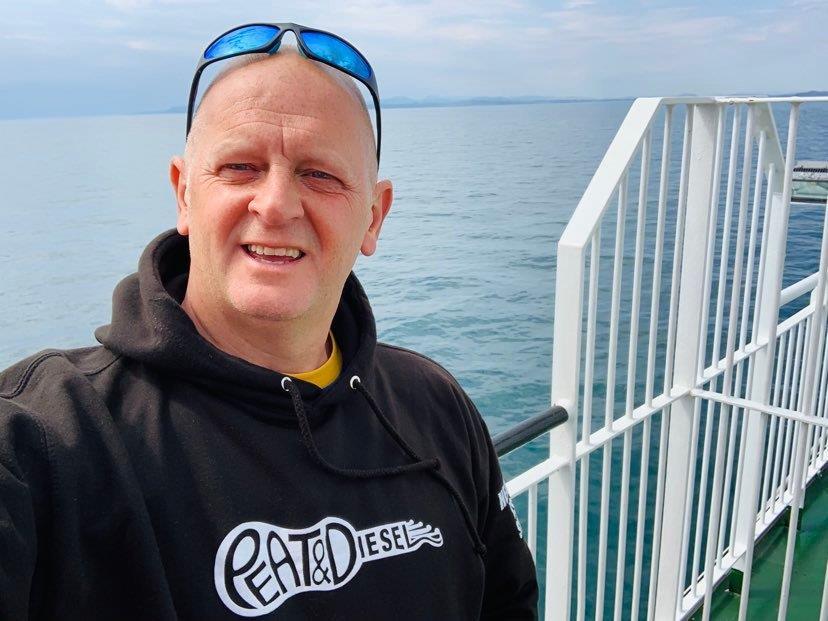
“It’s been a great journey and hopefully there will be more to come,” he says.
This feature takes you on Gary’s incredible journey in the following sections:
- Schemes and gangs
- Coming of age
- Near-death on the mountain
- Reality TV success
- Books and poetry
- Plays
- Music
SCHEMES AND GANGS
‘I have still got great memories of being a wee toddler’
One of many extraordinary things about Gary is his memory – he can actually remember life as a toddler.
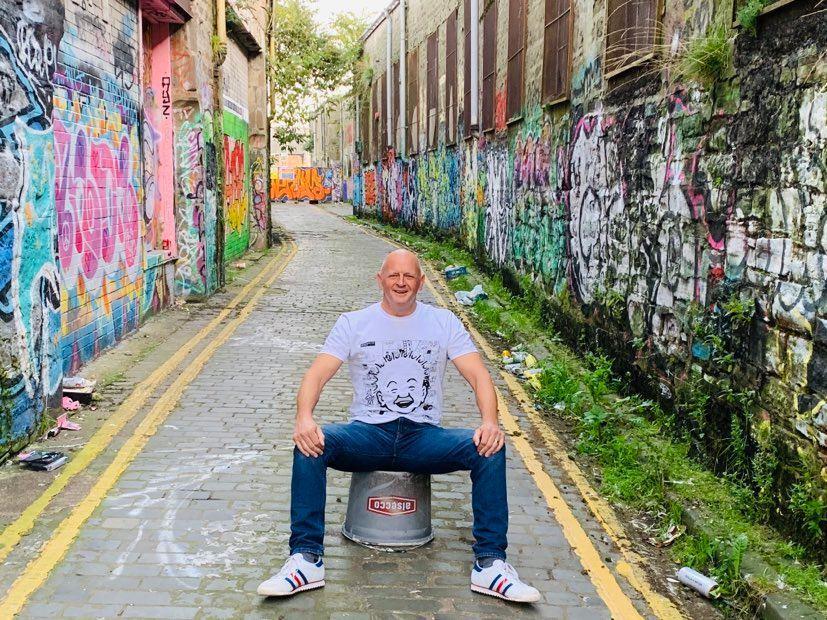
Born in 1967, the son of John and Margaret can somehow recall the setup at Ryehill Lane in Dundee’s West End, where he spent his first two years.
“We had an old outside toilet,” he says. “I can still see inside the living room and I have still got great memories of being a wee toddler, which is crazy.”
‘You would have to walk up to the ninth floor in the pitch dark’
The recollections become even more vivid of his time at the since-demolished Whitfield Court, where he lived on the ninth floor.
“The scheme was still getting built when we moved in,” Gary says. “Most of the land was berry fields and I remember picking raspberries with mum and dad and they would make jam from it.
“They didn’t have any money but we were given a brand new home which was a luxury when you think that many people in the city were living in squalor in tenements.
“To go somewhere with running water, a bath, inside toilets and heating was a luxury.”
The 12-floor building had certain problems though.
“While mum and dad were at work I would always be out playing.
“Quite often I would come back and the lifts were broken. You would have to walk up to the ninth floor in the pitch dark. I was only a wee bairn at the time.
“Looking back they were great memories though.”
‘We had a garden which was a luxury’
By 1974 a bigger home was sought due to the expanding family – Gary now had a younger sister, Stephanie, who was four years old.
The Robertsons moved to a house in Fintry Road, where Gary would spend the remainder of his childhood.
“It was an absolute midden,” he says. “There were so many problems in Fintry with gangs in the 1960s and 1970s.
“The mid-terrace house we moved to was an absolute tip but we had a garden which was a luxury.
“Fintry Primary School was great and I was lucky to get into the football team. Football was the be-all and end-all.”
‘There could be up to 60 people there’
Gary says that gang culture “resurfaced again” in the late 1970s, just as he was entering his teenage years.
“We had the Fintry Shams, Hilltown Huns, Kirkton Huns, Lochee Fleet and the Beechie Mob, who were based in Beechwood, off King’s Cross Road.
“You would not walk in certain areas and you would avoid shops for fear of people targeting you on mass.
“You would be at a shop and there could be up to 60 people there.
“To see that kind of thing now would be shocking but it was part of the times.
“It was about identity and sticking together.”
‘People did get stabbed’
Gary says he was “loosely” a member of the Young Fintry Shams. He recalls flashpoints involving gangs from up to five schemes at the Caird Park carnival, which was held twice a year.
“Each scheme wore different colours,” he says. “People would throw bricks at each other at night and then see each other at school the following day – it was daft.
“There were times when people did get stabbed but thankfully it didn’t happen as often as in Glasgow.
“But you had to watch out not to get caught in the wrong place at the wrong time. You just accepted it and tried to steer clear.
“If I was with the gang I’d hide at the back and if any trouble came along I’d be off!”
In 1979 Gary began at Linlathen High and initially played as a centre back for the school football team before turning his attentions to boxing and then karate.
“I left school with very little education,” he says. “I left with a couple of C passes in my O Levels.”
COMING OF AGE
‘My mates were into glue sniffing and mushrooms’
Entering working age with the aim of digging holes for a living, Gary did a Youth Training Scheme course in joinery.
He recalls “hating it” so got a job as a petrol pump attendant at Bunclare Dispensers in the Gourdie Industrial Estate.
“I earned £45 a week, which was a huge amount,” meaning he could afford holidays with his pals to the likes of Spain and Greece.
“A lot of my mates were into glue sniffing and mushrooms,” Gary recalls. “I was glad I never followed them because I was too much into my fitness.”
At the age of 18 he got a job at NCR Financial Services, also on the Gourdie estate, working on ATM cash machines.
“Life was good. I enjoyed watching Dundee United in the late 1980s and in 1991 I got married to Sue,” he says. The couple are still together and have two children, son Cailean, 27, and daughter Eilidh, 24.
NEAR-DEATH ON THE MOUNTAIN
‘I’d have been splattered’
At NCR an “important thing happened”. Gary noticed an advert for the company’s hillwalking and mountaineering club and promptly bought a pair of boots and joined up.
“This was one of the best things I have done in my life,” says Gary, who is still in the group 30 years on. “I am with a bunch of like-minded guys who enjoy a good drink and getting out into the mountains.”
His passion for climbing Munros almost led to disaster when he attempted Ben More and Stob Binnein one cold January day in the early 2000s.
“It was an icy day,” recalls Gary, who was hiking with his father and uncle. “I had just bought a new pair of boots but went up there with no crampons.
“After going up Ben More my dad left but me and my uncle carried on and tried Stob Binnein.
“We got halfway up but, without crampons, it was no good.
“I tried to do an ice-break but went flying a couple of hundred feet down the mountain.
“I went head-first between these two big boulders; a few inches either side I’d have been splattered.
“I should have died.”
Miraculously, Gary escaped with a swollen thigh.
“We ended up coming down in the pitch black,” he says.
“I phoned mum and said I had fallen and almost killed myself. I really did get away with it.”
REALITY TV SUCCESS
‘I’m going to win this’
The NCR hillwalking club has helped Gary stay fit while meeting new people.
It was also through his walking pals that he became aware of a reality TV show that would “change my life path”.
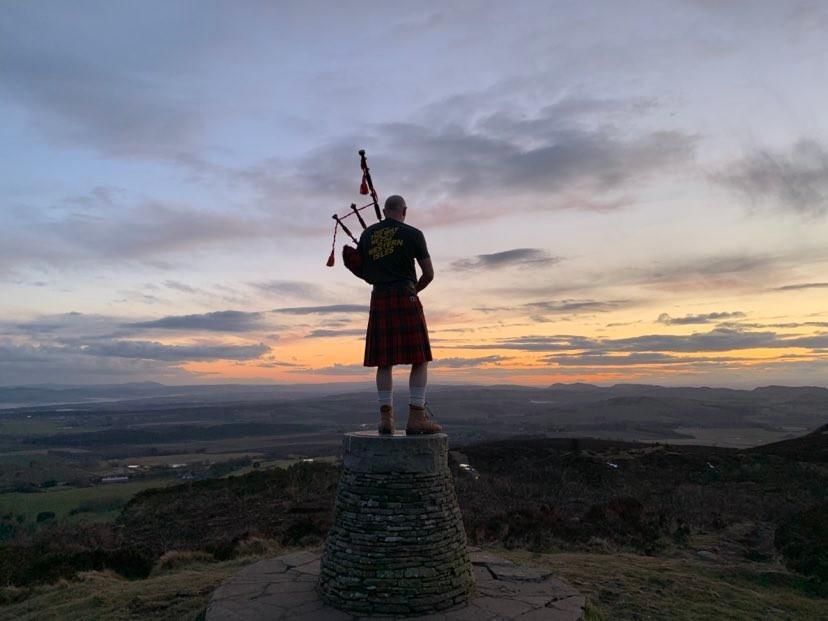
In the year 2001 the BBC asked such groups for people to partake in the new show ‘SAS: Are You Tough Enough?’.
“I thought, ‘this is up my street’,” Gary says.
“I had been reading books about the special forces so I was really interested.”
He sent in a video with his application and was handed an audition that included a fitness test.
Gary was successful and had a simple message to his parents as he left for filming in the Scottish Highlands.
“I’m going to win this,” he told them.
‘I thought to myself “I can do anything”‘
Gary was one of 29 entrants who experienced a simulation of the British Army’s Special Air Service’s selection process.
They participated in a series of challenges over 11 days, sleeping in tents when not on specific overnight/survival exercises.
Exercises included marksmanship, swimming in full combat gear, navigation, free-fall parachuting and ‘The Long Drag’ – a 40-mile trek with a 55lb bergen that had to be completed in 20 hours.
The majority failed to complete the course, retiring in the early stages on medical grounds or due to being unwilling to continue, and in latter stages due to failing to meet the required standard.
Gary, however, was true to his word and came out on top. His reward was a hand-shake from the ex-SAS Sgt Eddie Stone.
“It was hell but I won it,” Gary says. “It was a catalyst for me. When I came home from that I thought to myself ‘I can do anything’.
“I am glad there was no prize or money because I proved I could win without there being an incentive to push yourself.”
BOOKS AND POETRY
On the train home Gary began putting together a diary of his experiences in the show.
“As I was doing that I decided to write a book about it,” he says.
He created a manuscript but there were no takers so his wife’s mother stepped in to pay £1,000 so he could self-fund his book, SAS: 11 Days In A Hell Called Paradise.
The book was a success, taking enough money to pay her back.
‘At school, poetry was the worst thing going’
“As I started writing, poetry came into my head,” Gary says.
“I saw a poem written by a friend on a wall in Dundee. It was in the Dundee dialect and about heroin.
“I was interested so I went to the Hilltown Horizons writing group. There I met Mark Thomson and Kevin McCabe – two guys like me writing the Dundee dialect.”
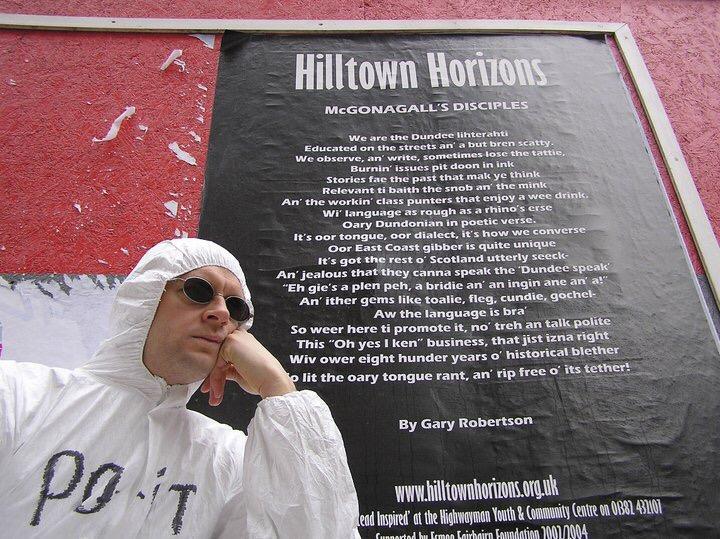
Gary attended group sessions twice a week and began writing poetry about gangs, berry picking and other memories of growing up in the city.
In 2002 the group began poetry sessions on the street, in pubs and other venues.
Gary says: “I have been in boxing rings and jumped out of planes but performing poetry was up there in terms of feeling nervous.
“At school, poetry was the worst thing going – we were into punk rock and skinheads and even if it was Rabbie Burns we thought ‘what’s this crap?'”
‘I write from the heart’
His street poetry was used in the short documentary ‘Young Anes’ depicting the life of a struggling young mother in Dundee. This was shortlisted for the best short documentary award at the 2006 Edinburgh International Film Festival.
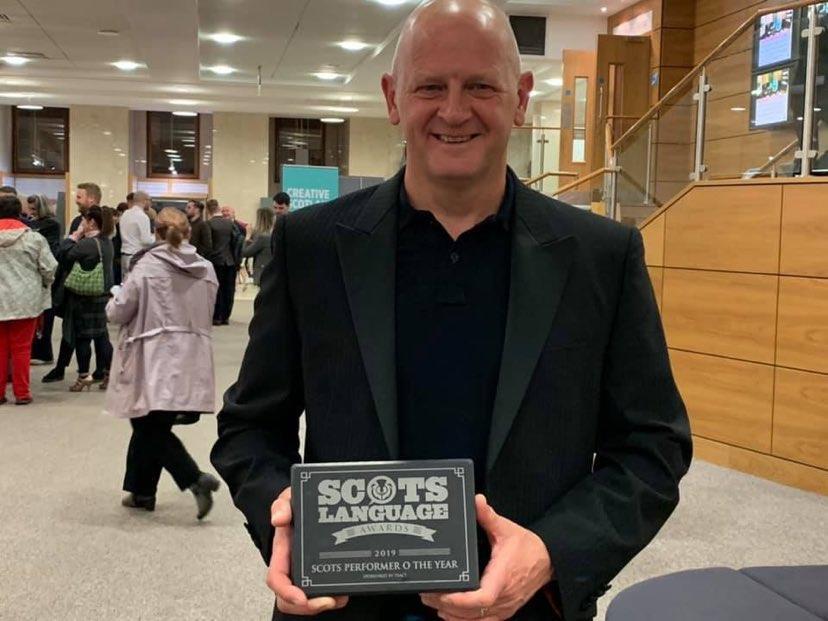
In 2019 Gary was named Scots performer of the year in the first Scots language awards.
“I write from the heart as language I believe, especially local dialect, brings to life the characters from the streets and cities where we live.
“I have done quite a few talks at schools and I hope I am inspiring kids to keep the language alive.
“When I talk to younger people I tell them they really can do anything they want if they put their mind to it.
“There is a big American influence on young people these days, which is why it is really important to keep the Dundonian language alive.
“When I was younger it was frowned upon to speak Dundonian but now we have young people who use the Dundonian dialect in text messages.”
‘I couldn’t believe these got published’
Having been infected with the writing bug, Gary began documenting the history of Dundee gangs.
During a poetry night in Edinburgh he became acquainted with Gavin MacDougall, a director at Luath Press, who said he would publish two books Gary was working on.
In 2007 Pure Dundee, a 128-page collection of poetry written in the local dialect, was published.
The following week saw the release of Gangs Of Dundee, charting the history of the city’s youth gangs going back to the Teddy Boys in the 1950s.
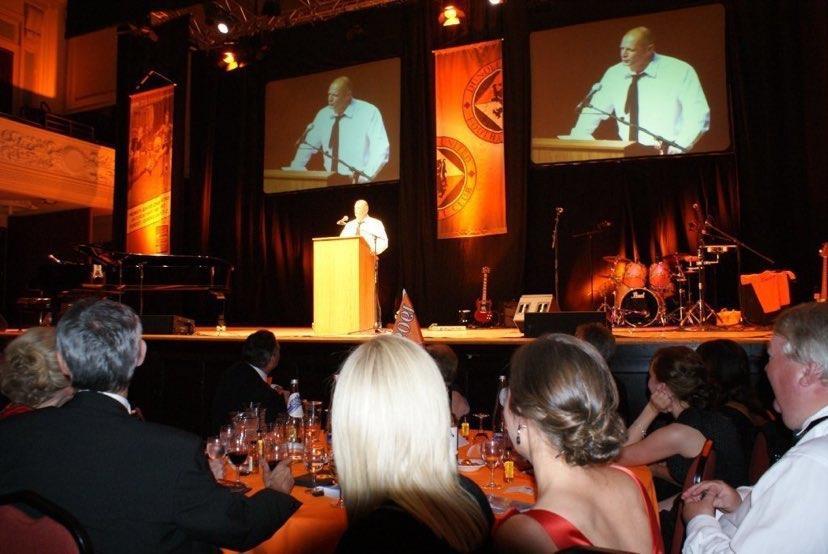
“I couldn’t believe these got published,” says Gary.
“Next was a different challenge. I changed publisher to Black and White (Edinburgh also) and worked jointly with local soccer legend Ralph Milne on his autobiography called What’s It All About Ralphie?”
In October 2010 Black and White published his book called Skeem Life, a humorous collection of Gary’s memories from the 1970s.
PLAYS
‘There was not enough money to live on’
Gary was one of 650 workers made redundant from NCR in 2007.
“I had the books published so I thought I was going to be a writer but there was not enough money to live on,” he says.
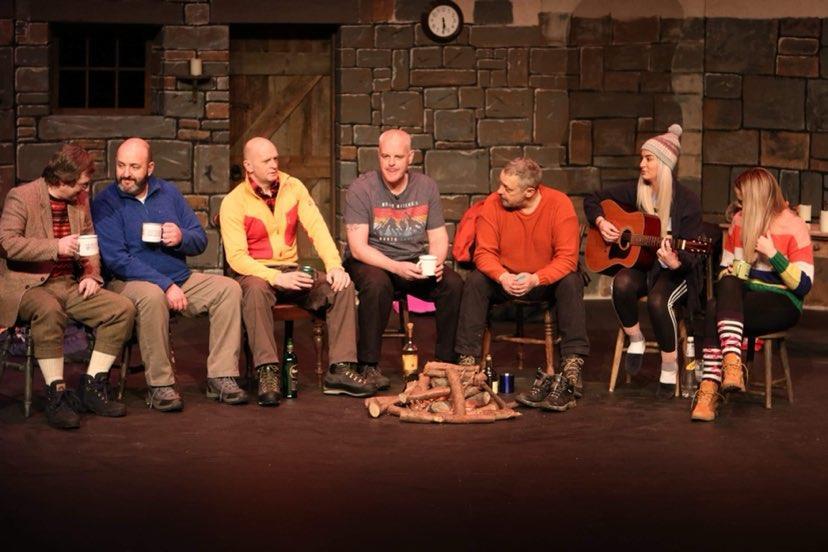
Two years later he began working for Dundee City Council as a bin collector. It gave him the thinking space to embark on a new hobby – writing plays.
His first was Running With Gangs. “Set in 1979, it is similar to West Side Story but in Dundee,” he says.
“My wife had always done theatrical stage so I gave it a go. It never hit the stage but maybe it will see the light of day.”
‘It was mayhem’
But the man who showed super-human qualities to win the SAS reality TV show a decade earlier would not take this setback lying down.
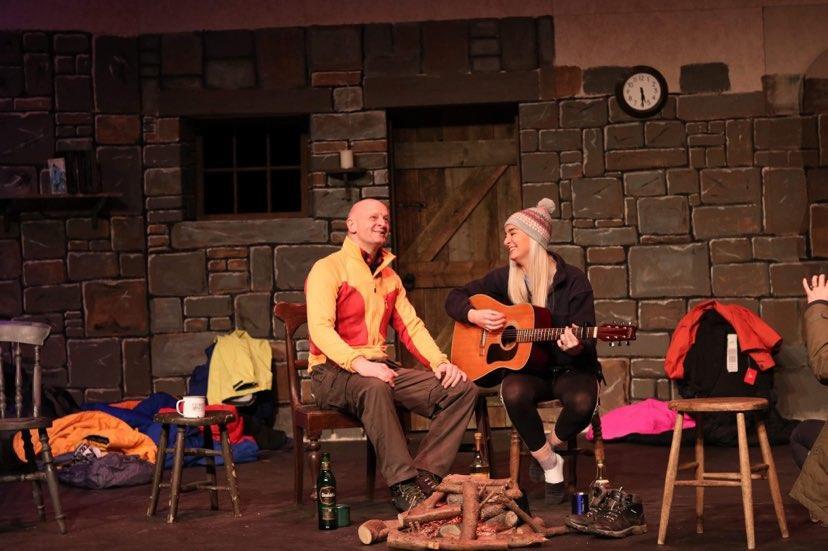
In 2011 he wrote The Berries. This time the show, set in 1974, made it to Bonar Hall.
“It was sold-out on each of the three nights,” Gary says.
“I was working on the bin lorry and hundreds of people were calling me for tickets. It was mayhem.
“The main characters were two guys and two girls playing residents of a Fintry scheme with a life of nonsense going on.
“The main thing was that the language was as Dundonian as it gets.
“It was so hard for the actors because this was a totally different audience involving people from schemes who didn’t go to theatres.
“On the first night I panicked that people would not enjoy it but in the first few minutes they were laughing. It went great.”
Due to the play’s success it was also shown at Bonar Hall in 2012 and 2013.
‘I have had more than 40 sold-out performances’
Gary followed this up with ‘The Scaffies’, which follows a group of bin workers in 1978. This was shown at Dundee Rep in 2015 and 2017.
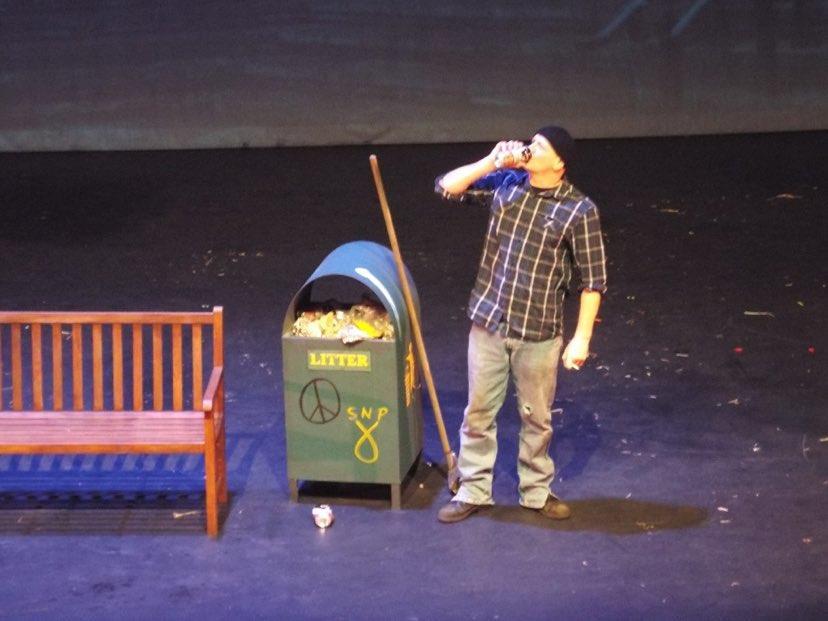
In 2018 his show ‘Middle of Nowhere – a Bothie Haunting’ portrayed the experiences of walkers in the Scottish Highlands.
“I have had more than 40 sold-out performances,” says Gary. “I am so grateful people came back to enjoy my shows.”
MUSIC
‘I was singing and I also started using pipes’
Gary’s way with words and ability to deliver a performance has also crossed over into the world of music.
In 2007 his friend Stevie McCall, a bass player, suggested he should put his poetry to music and they created the punk band The Cundeez. Their first song, ‘Totally United’, honoured Gary’s beloved Dundee United.
The early songs were a mixture of originals and re-writes of old punk classics by the likes of Sham 69, Buzzcocks. They were then changed into songs for United.
“We did gigs at the Doghouse, the 4 J’s and even Tannadice itself.
“I was singing and I also started using pipes. I had to learn from sheet music, which was hard but it went great.”
‘We will keep going’
To ensure they had wider appeal the band also began making music without a focus on football. Their first full-length album, ‘Cundee Radio’, was released in October 2010.
The album consists mostly of original songs as well as a cover of the Madness classic ‘One Step Beyond’.
That year proceeds from the band’s Christmas single, ‘Xmas In The Schemes’, were donated to the children’s charity Variety Club of Great Britain.
By 2020 the group released their fifth album ‘Tekyll and Hyde’ and are currently working on their sixth.
“All of us in the band are in our 50s and as long as we have got our health we will keep going.”
‘People think I must be a millionaire’
Many find it hard to believe that Gary, who still lives in Fintry, continues to work on the bins after enjoying such outstanding success.
“Some people think I must be a millionaire but I am still on the bins,” he says.
“I have always enjoyed life and have done so much. Hopefully there is much more to come.”
